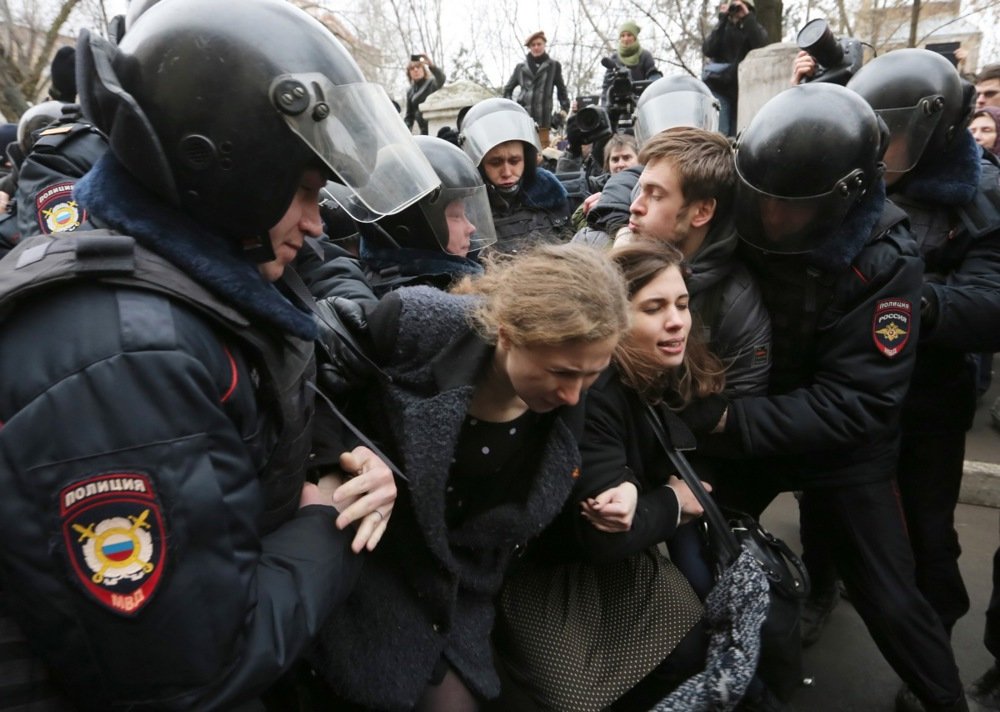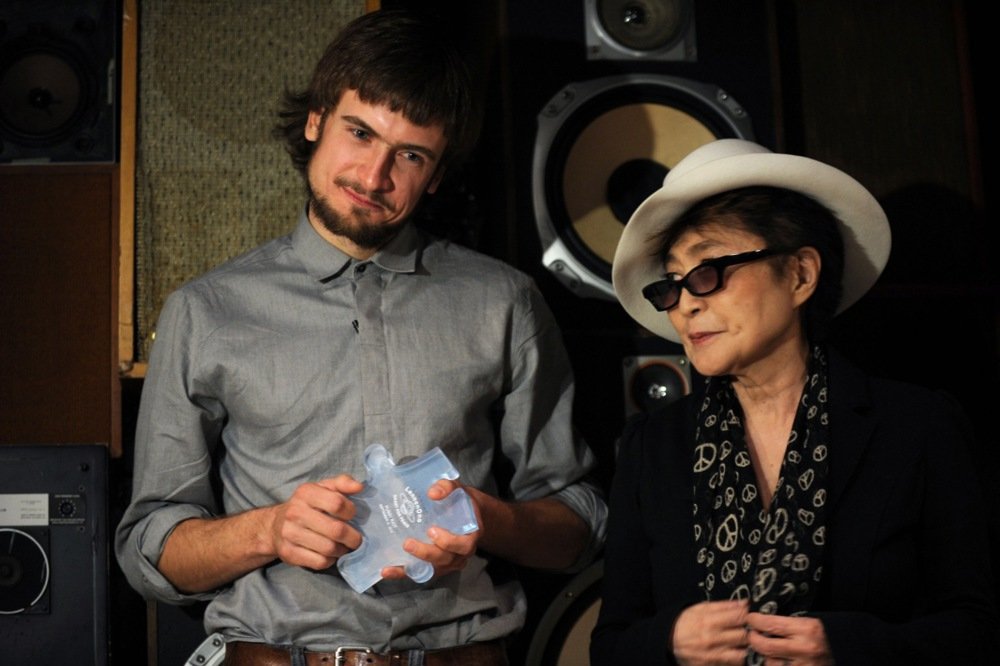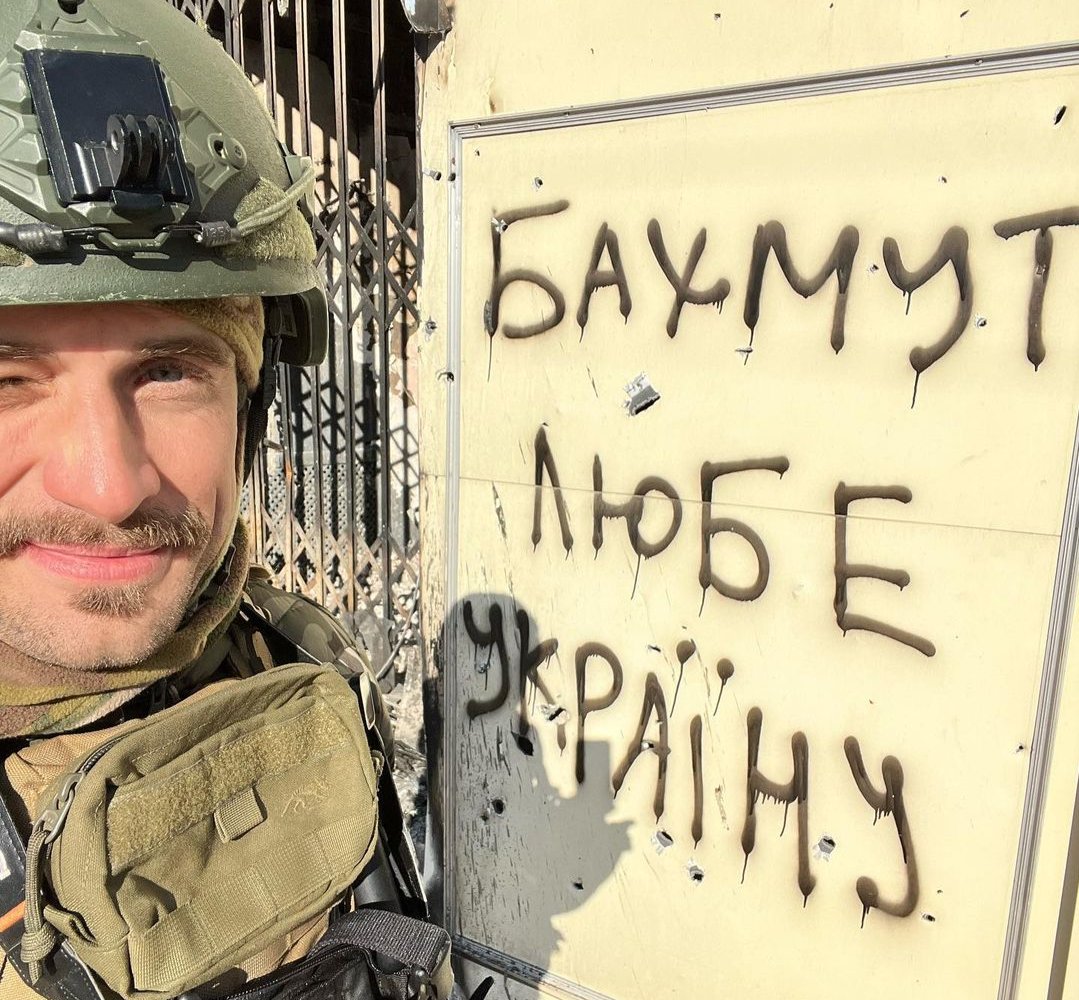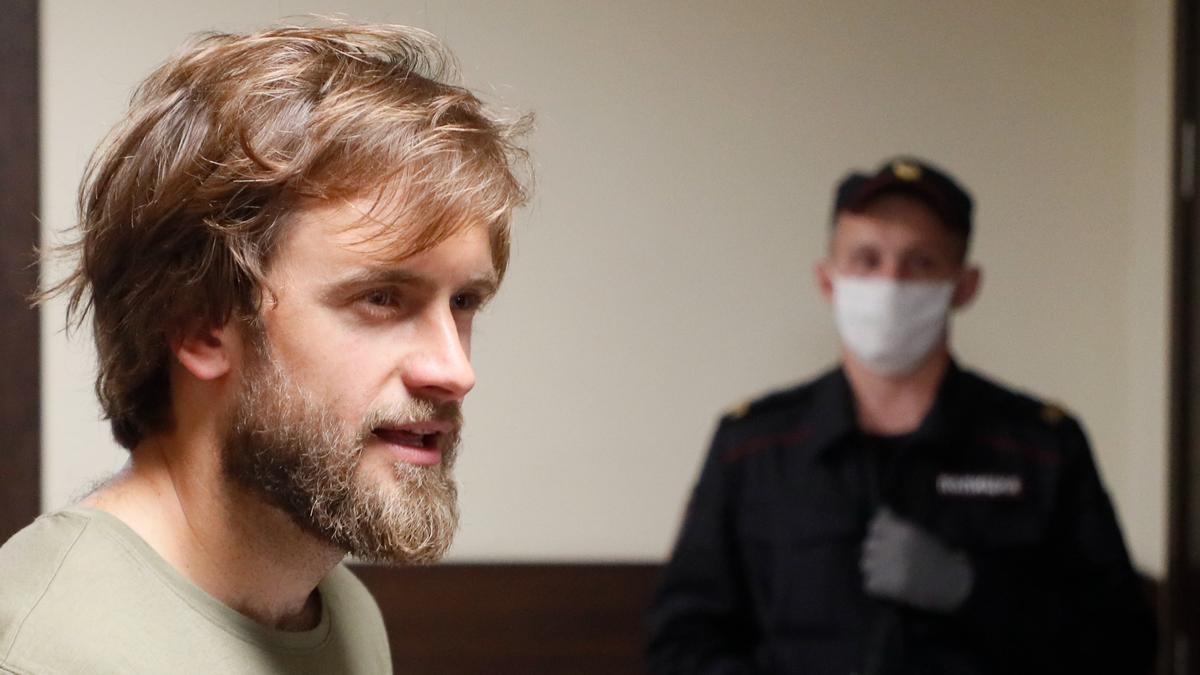Just days before the presidential elections, Russian law enforcement searched the homes of at least 20 artists and activists across the country, detaining several of them for questioning. The move was widely seen as part of the criminal investigation into Pussy Riot member and Mediazona founder Pyotr Verzilov, an outspoken Kremlin critic who faces treason charges.
In the early hours of 12 March, several Federal Security Service (FSB) officers arrived at the St. Petersburg home of artists Katrin Nenasheva and Natalya Chetverio and confiscated all their electronic devices. It was during her hours-long interrogation at the police station later the same day that Nenasheva learnt that she was a person of interest for prosecutors preparing treason charges against artist Pyotr Verzilov.
On the same day, another group of FSB officers, dressed in civilian clothes, arrived at the residence of activist Kristina Bubentsova, who also discovered that the search was related to the same case.
“Everything is fine now; we went outside and met Katrin [Nenasheva]. We discussed what happened. I was obligated to appear in court, if necessary, as a witness. I also signed the protocol,” Bubentsova told Novaya Europe.
Similar searches occurred in at least four other Russian cities. Police and FSB officers questioned numerous artists, conducted searches of their homes, and seized their electronic devices.
Collective action
Pyotr Verzilov, now 36, had an unusually international upbringing, having spent his childhood in Japan and Canada as well as in Moscow. At the age of 18, he enrolled to study philosophy at Moscow State University where he made various connections to Moscow’s intellectual and artistic circles, forming friendships with a number of poets, artists, and philosophers.
It was while at university that Verzilov met his future wife, Nadezhda Tolokonnikova. In 2007 the two of them were among those who founded the art collective Voina — Russian for war — whose stated mission was the creation of political street art.
One of Voina’s first performances took place at Moscow’s Timiryazev State Biological Museum, and involved several of the group’s members openly engaging in sexual acts in the museum, while others held up a sign protesting Putin’s plan to hand the presidency over to Prime Minister Dmitry Medvedev for a term to circumnavigate the constitutional ban on him serving more than two terms, or, as Tolokonnikova later called it, the moment “the country was truly fucked”.

Verzilov detained during a protest in Moscow alongside Pussy Riot members Nadezhda Tolokonnikova and Maria Alyokhina in May 2012. Photo: EPA/SERGEI CHIRIKOV
Voina increasingly made waves in Russian society with its numerous performances, and as one of the group’s founders, Verzilov developed relationships with many of the emerging leaders of Russia’s political opposition, becoming actively involved in staging political protests.
It was by organising a protest against the deforestation of Moscow’s Khimki Forest in 2010 that Verzilov demonstrated his talent for organising major demonstrations and convincing activists, celebrities, and notable public speakers to come together and lend their voices to a common cause.
The movement to protect the ancient forestland outside Moscow was the first large-scale protest in Russia for many years and ultimately became a pivotal struggle in contemporary Russian politics, pitting a wide spectrum of activists against the government’s decision to construct a new road through Moscow’s green belt. The protest, however, succeeded only in delaying the project, which ultimately went ahead, albeit with the width of the road being reduced.
The relative success of the protests emboldened the Russian opposition, however, and many have suggested that the Khimki protests paved the way for even larger demonstrations that began the following year, including those on Moscow’s Bolotnaya Square held in response to the falsified State Duma elections.
Verzilov, along with fellow opposition activists Alexey Navalny and Ilya Yashin were jailed for 10 days for their involvement in the demonstration, heralding the unprecedented government crackdown on dissent in Russia that accompanied Putin’s return to the presidency in 2012.
Punk prayers
Nothing symbolised that hardening of attitudes better than the jailing of three members of feminist punk band Pussy Riot for two years for their impromptu performance of a “punk prayer” to rid Russia of Putin in Moscow’s Cathedral of Christ the Saviour on 21 February 2012. Verzilov, who by now was married to Tolokonnikova, had helped get the band’s instruments into the church, but hadn’t been part of the performance, and remained at liberty.
With Pussy Riot in prison, he became the biggest advocate for their release, and made tireless efforts to convince prominent world leaders and celebrities including Hillary Clinton, Madonna, Bjork and Paul McCartney to voice their support for the band members.

Yoko Ono presents the LennonOno Grant for Peace to Pyotr Verzilov in September 2012. Photo: EPA/BRYAN BEDDER
In 2014, following Pussy Riot’s release, Verzilov, Tolokonnikova and fellow Pussy Riot member Maria Alyokhina, founded the now exiled independent media outlet Mediazona, whose coverage of political persecution and the harassment of activists and Kremlin critics has won it widespread acclaim.
In September 2018, Verzilov was among the Pussy Riot members who disrupted the World Cup final in Moscow being attended by Putin by running onto the field. In a manifesto published alongside the incident, Pussy Riot demanded the release of all political prisoners, an end to illegal arrests at rallies, the right to free elections and for the criminal justice system no longer to be used as a weapon against the Kremlin’s opponents. Verzilov and the three other protesters were imprisoned for 15 days for their action.
Having so publicly and internationally embarrassed Putin, an unforgivable act in the Kremlin rule book, later the same month Verzilov was poisoned in an incident that would foreshadow the fate of Alexey Navalny.
After taking ill and being hospitalised in Moscow, Verzilov was flown to Berlin’s Charité Hospital for treatment, just as Navalny would be following his poisoning two years later. While Charité said that the evidence for poisoning was convincing, it stopped short of confirming definitively that poison had caused Verzilov’s illness. Needless to say, no substantial investigation into the poisoning was ever conducted by the Russian authorities.
Since the failed poisoning attempt, the Russian authorities have continued to complicate Verzilov’s life, labelling him a foreign agent in 2021, and charging him for his alleged failure to declare his dual Canadian citizenship, for which an arrest warrant had to be issued for him in absentia, as Verzilov had already left the country.
Skin in the game
Following Russia’s full-scale invasion of Ukraine in 2022, Verzilov went to Ukraine with American screenwriter Beau Willimon intending to make a documentary about the war, but being in the country apparently convinced himself that journalism alone was an insufficient response to the situation in the country.
In a 2023 interview with Russian independent journalist Yury Dud, Verzilov made the shock announcement that he had joined the Ukrainian army and was an active combatant against Russian forces in the country. He subsequently resigned as Mediazona’s publisher to spare the outlet a potential conflict of interest.

Verzilov stands next to graffiti that reads ”Bakhmut loves Ukraine” in the city of Bakhmut, eastern Ukraine, in January. Photo: Instagram
Since then, Verzilov, has continued to condemn Russia’s war on its neighbour, sharing numerous images and videos from the battlefield and denouncing Russian atrocities such the alleged mass killings of civilians in Bucha. In response, the Russian authorities charged him with spreading “false information about the Russian army” and sentenced him in absentia to 8.5 years in prison late last year, although that sentence was overturned on a technicality earlier this month.
The numerous searches conducted at the homes of Russian artists, some of whom didn’t even know Verzilov personally, were carried out just after his sentence was annulled due to procedural errors. However, the case is expected to be retried in a lower court in due course.
Regarding the searches and arrests carried out in connection with Verzilov’s treason accusation, Dmitriy Zair-Bek, the head of Russian human rights group First Department, said he believed they were merely acts of intimidation.
“The case is not just about the criminal charges brought against Verzilov for treason. This is simply an excuse to go through the lists of activists, artists, and street artists that they have compiled for a long time and regularly update. These are the people whose behaviour the authorities cannot predict and, most importantly, cannot prevent their actions using any conventional methods.”
Join us in rebuilding Novaya Gazeta Europe
The Russian government has banned independent media. We were forced to leave our country in order to keep doing our job, telling our readers about what is going on Russia, Ukraine and Europe.
We will continue fighting against warfare and dictatorship. We believe that freedom of speech is the most efficient antidote against tyranny. Support us financially to help us fight for peace and freedom.
By clicking the Support button, you agree to the processing of your personal data.
To cancel a regular donation, please write to [email protected]

